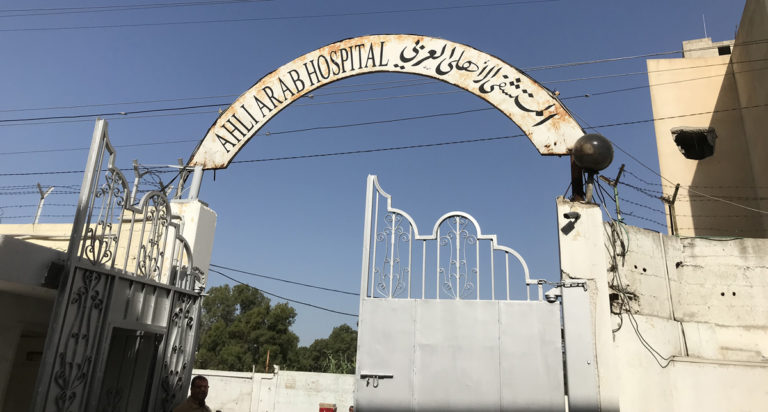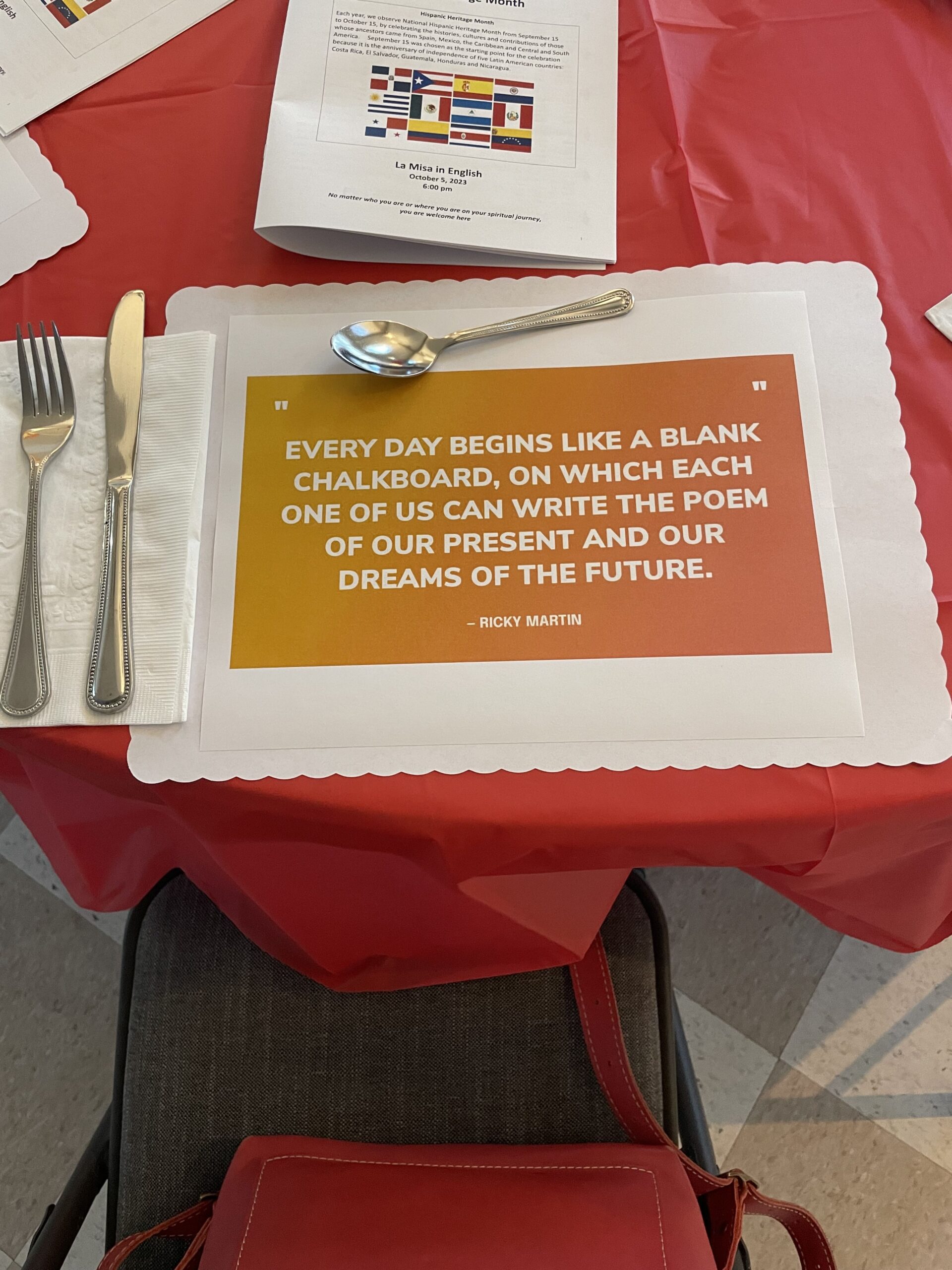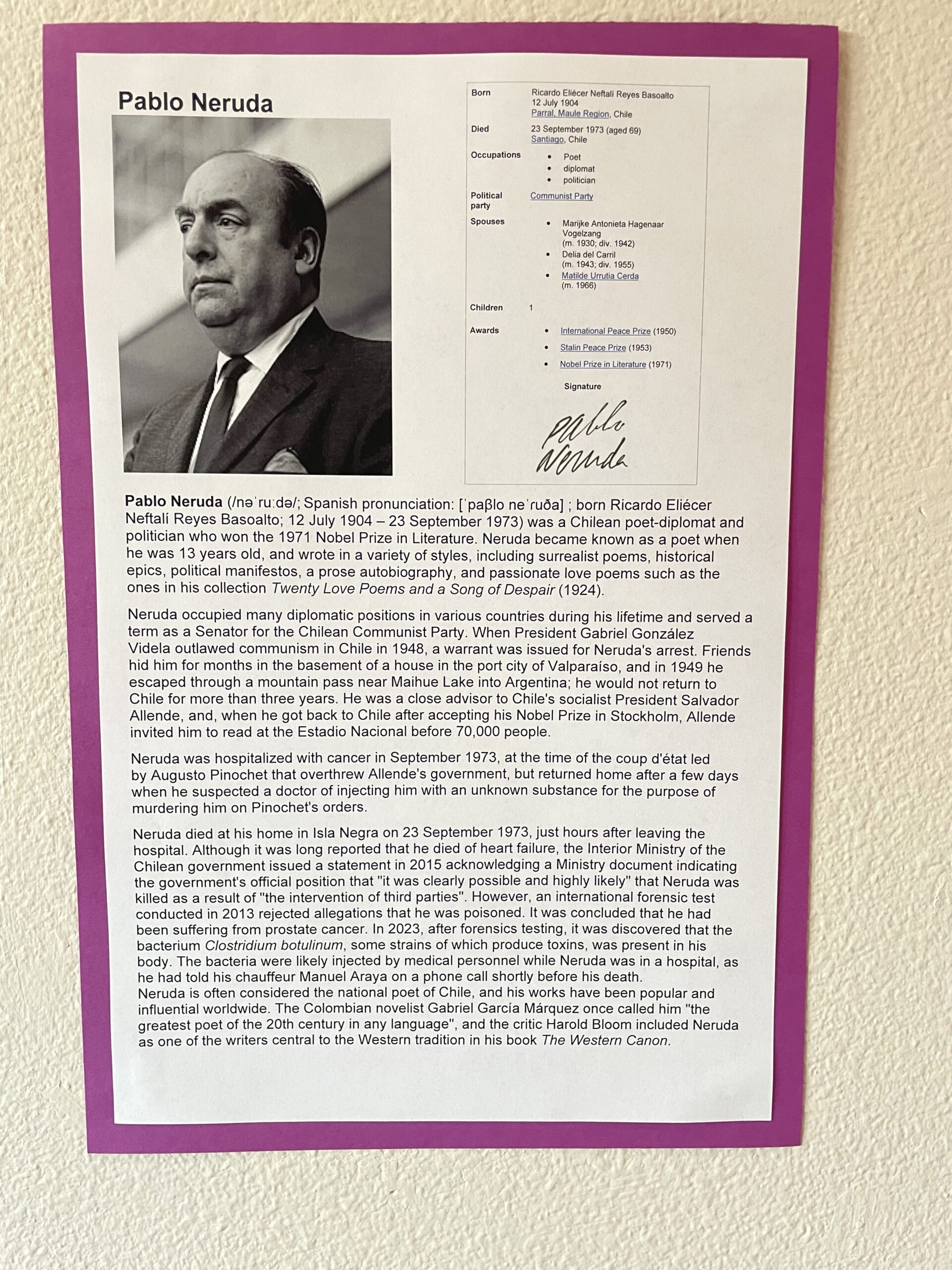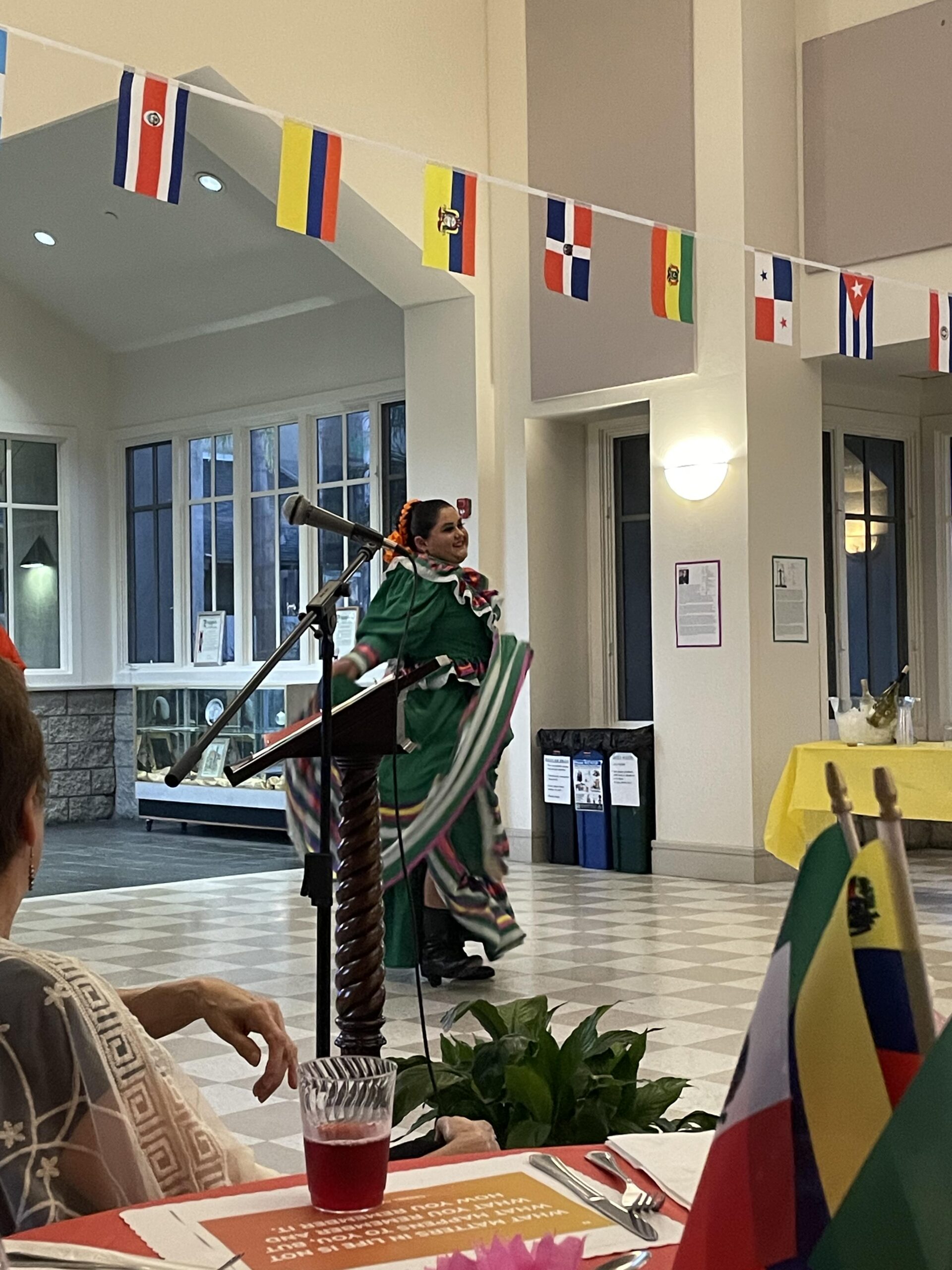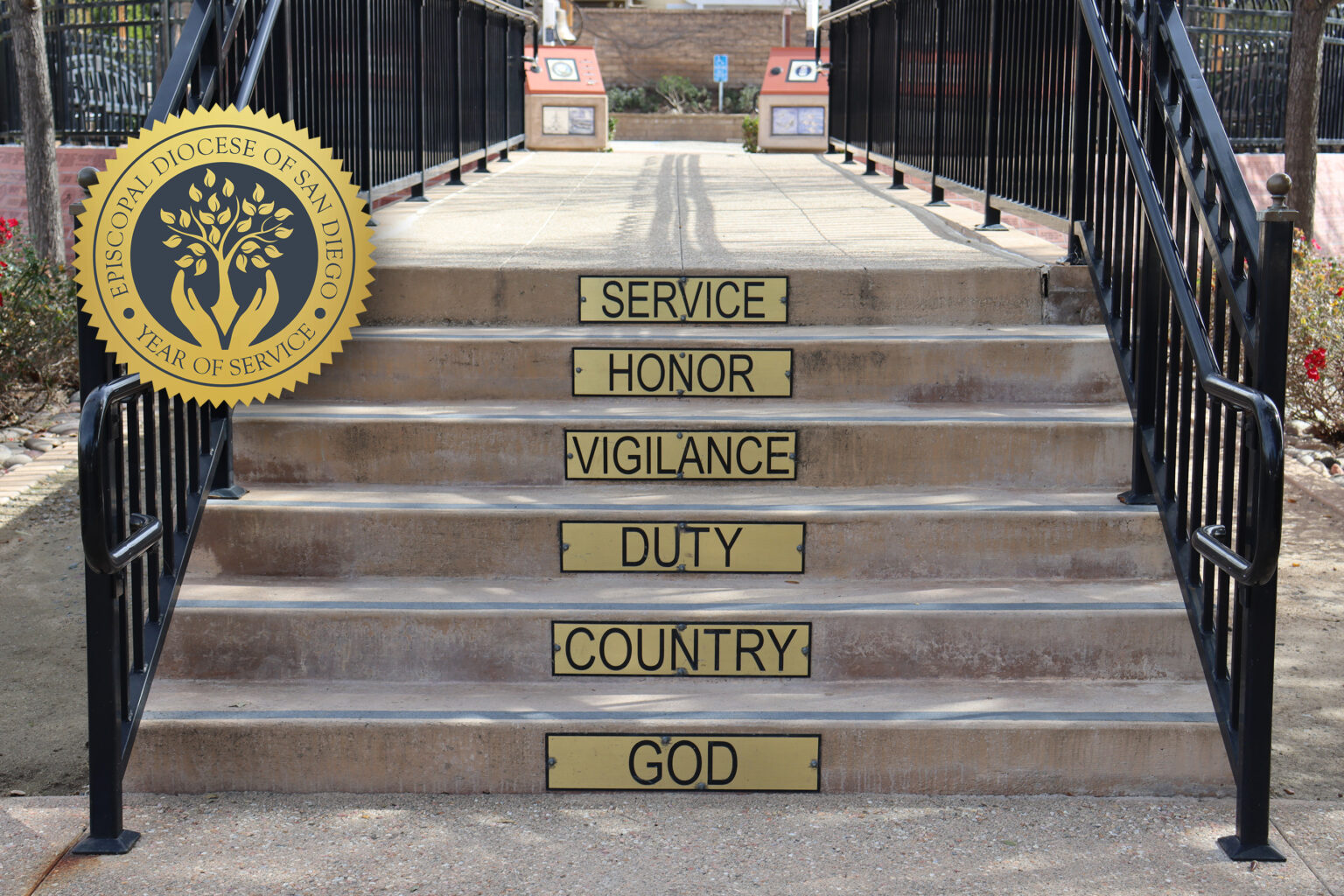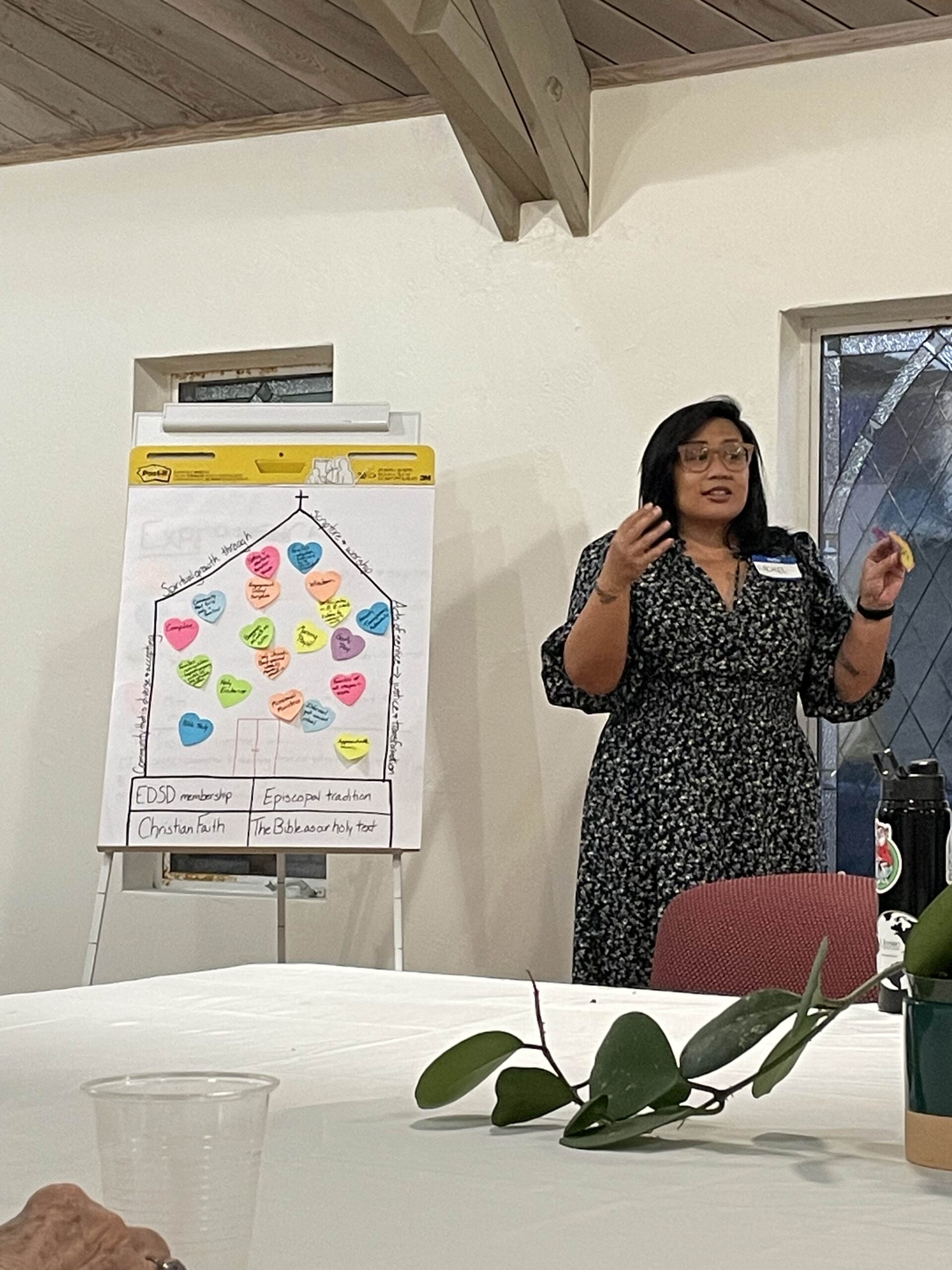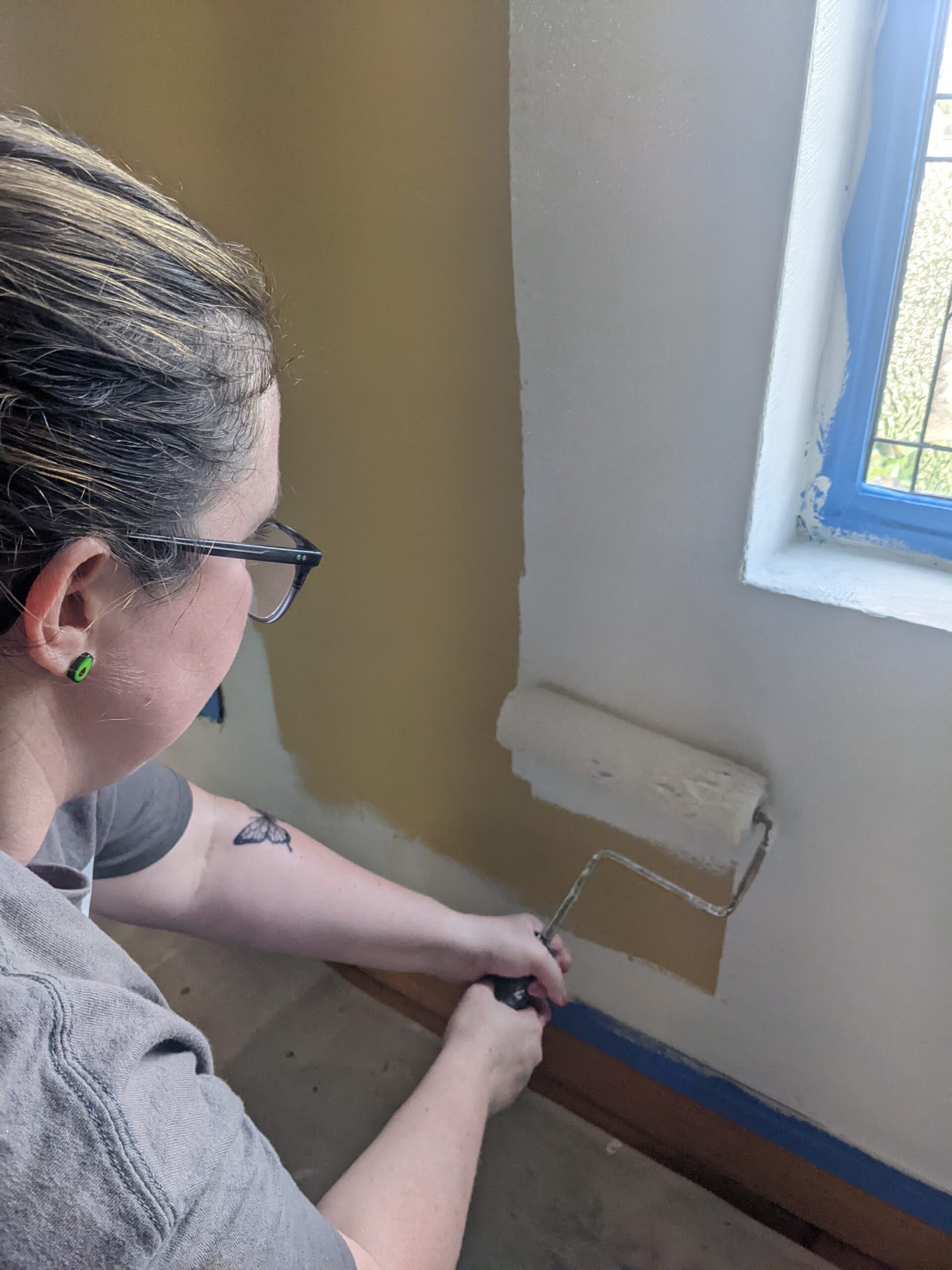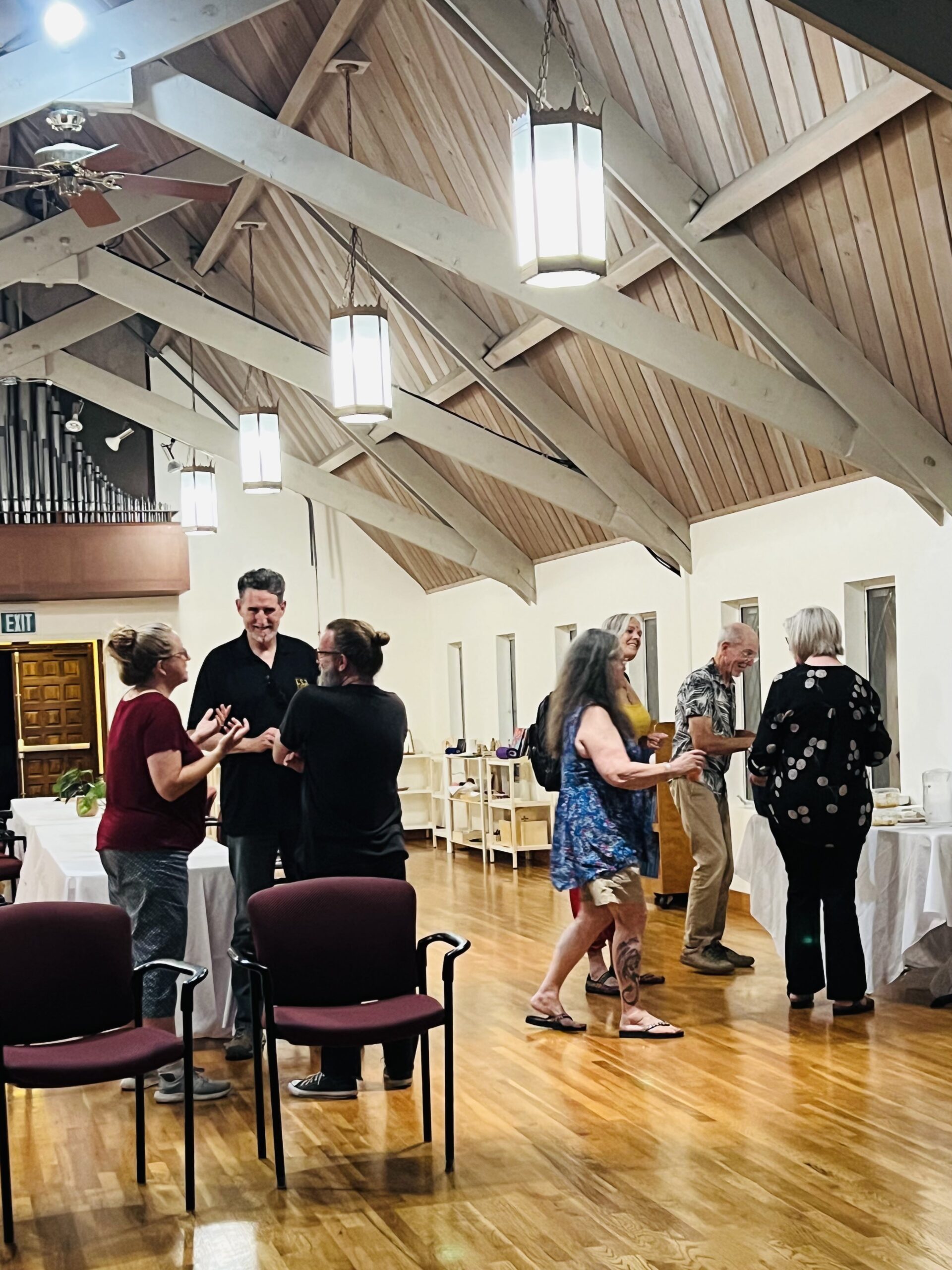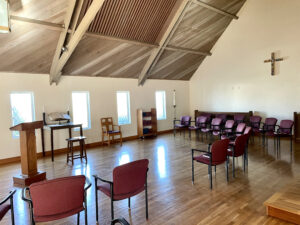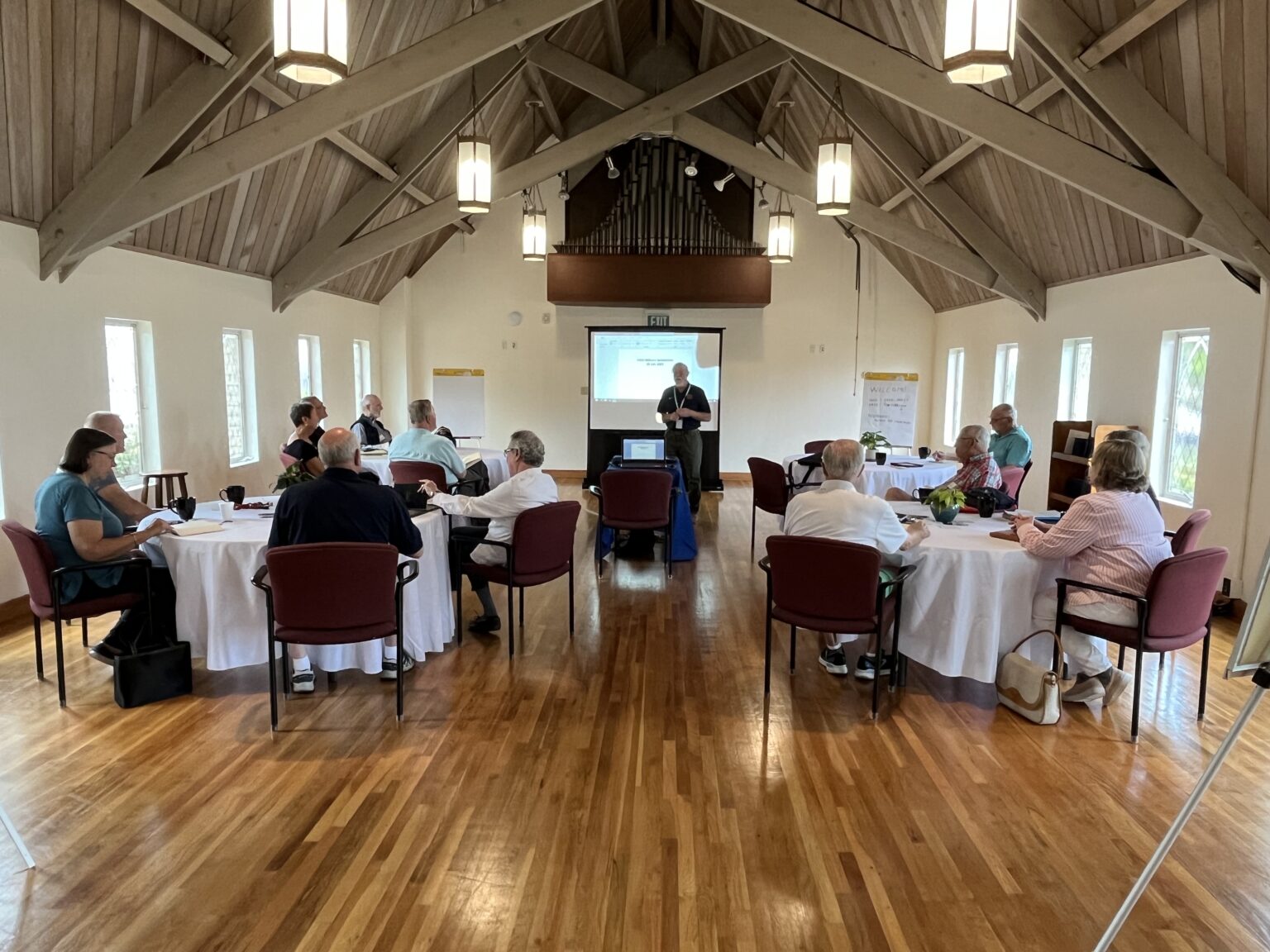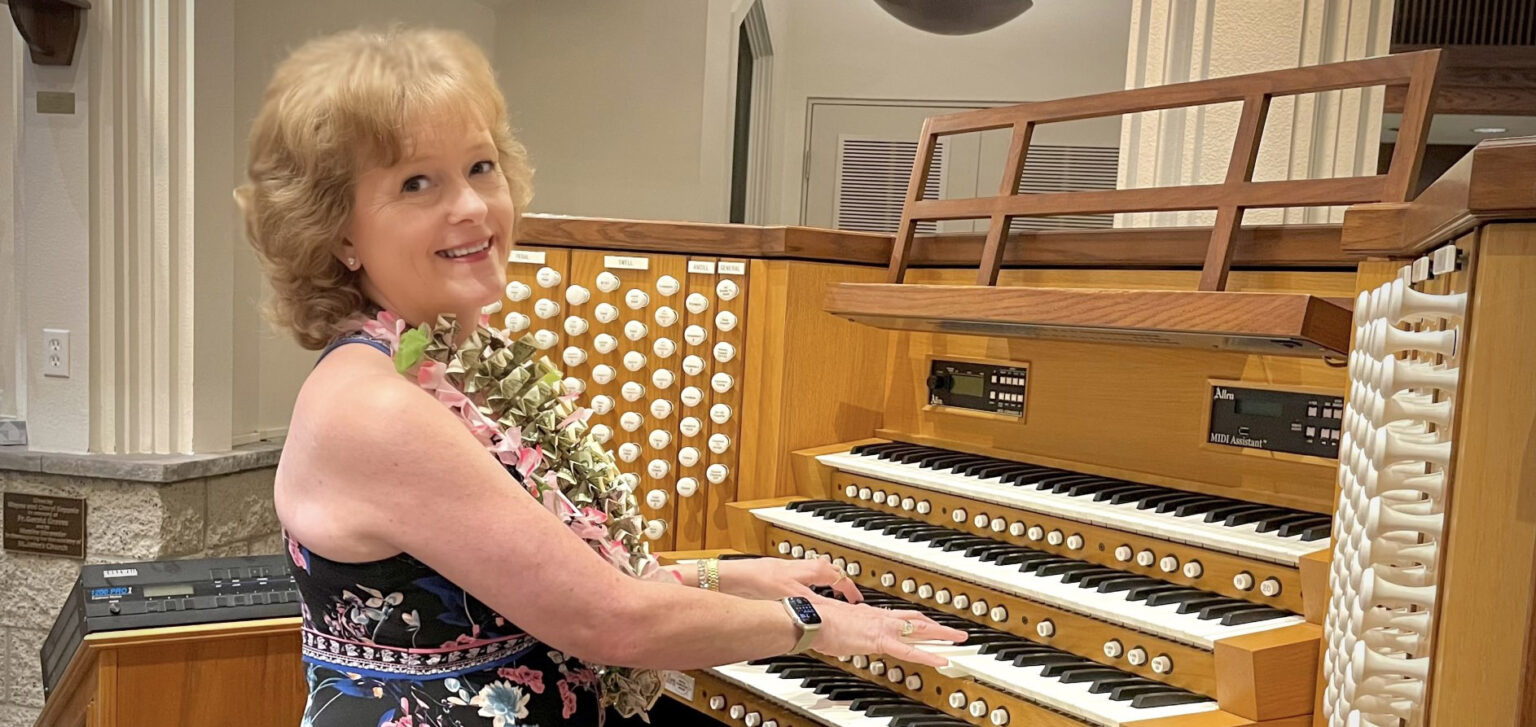Keep alert; stand firm in the faith; be courageous; be strong. Let all that you do be done in love.
The call to “be courageous” is a familiar phrase in the Episcopal Diocese of San Diego because it speaks to the human spirit’s incredible capacity to rise above adversity. As Bishop Susan reminds us, courage isn’t the total absence of fear but the choice to move forward despite a measure of it–a call to embrace our humanity, with all its vulnerabilities, to strive towards God’s purpose.
This year, at the 50th Annual Convention of the Episcopal Diocese of San Diego, we are very excited to celebrate five decades of ministry together. This year’s celebration is a reminder that while our journey may be bumpy at times, the path is illuminated by faith, courage, strength, and love. We’ve journeyed together through half a century–carrying forward our faith and mission!
Pre-Convention Hearings
Budget Hearings
The 2024 budget will be reviewed in advance of convention at two hearings. These will be recorded for viewing at alternate times.
November 2, 5:30 p.m. https://us02web.zoom.us/j/88178393099?pwd=M2hUbzhmUTduMWREU0RQdnNJSU1hZz09, Meeting ID: 881 7839 3099 Passcode: 958598
November 8, 5:30 p.m. https://us02web.zoom.us/j/89729178653?pwd=NDJ4YVhGWitza1JaT3hDaXRIdFBnZz09, Meeting ID: 897 2917 8653 Passcode: 830507
Resolution Hearings
Resolutions being presented to convention will be reviewed in advance of convention at two hearings. These will be recorded for viewing at alternate times.
October 25, 5:30 p.m. https://us02web.zoom.us/j/82510151812?pwd=dFBxOXE4T2t3YkkrajNuU2J1VEtzUT09, Meeting ID: 825 1015 1812 Passcode: 576587
November 1, 5:30 p.m. https://us02web.zoom.us/j/87563501469?pwd=YkI5U0tRNzRZSUVDNlZ6cGtOZ0FSUT09, Meeting ID: 875 6350 1469 Passcode: 622999
Convention Schedule
EDSD’s 50th Annual Diocesan Convention will be held in person November 10-11 at St. Paul’s Cathedral in San Diego.
Friday, November 10
ECS Welcome Reception (Light Refreshments) 12:30-1:45
Check-in 1:00-2:00 pm
Convention Business 2:00-5:00 pm
Bishops Talks 4:30-5:45 pm
50th Anniversary Celebration Dinner 6:00-9:00 pm (Sold Out)
Saturday, November 11
Check-in 7:30-9:00 am
Convention Business 9:00-4:00 pm with breaks
50th Anniversary Dinner (SOLD OUT!)
This year holds special significance as we are celebrating 50 years as a diocese. We’ve journeyed together through half a century, carrying forward our faith and mission. Join us for EDSD’s 50th Annual Convention (November 10-11) and reflect on the challenges overcome and victories achieved at the 50th Anniversary Dinner at St. Paul’s Cathedral (November 10). Seating is limited. Tickets are sold on a first come first served basis.
Youth Presence at Convention
Join with youth from all over our diocese as we serve and play together. Each year Convention offers the opportunity for our diocese to gather for business, fellowship, and worship. A vibrant youth presence is an integral part of that day! Highlights of the day will include ridiculously fun games, a thoughtful service project benefiting our military ministry, and delicious food. Register Here
Convention Volunteer Opportunities
If you are interested in one or more of the volunteer opportunities below, please register here.
Friday Dinner
Setup Team: We need help setting the table for dinner. Are you interested in lending a hand in the celebration of our Diocese’s 50th year of ministry? Join a small crew to prepare the Cathedral Nave for the celebration dinner!
Kitchen Crew: With every great celebration, there’s a great team to help clean up. Do you love to serve your community by helping clean up the party? We need a small, dedicated team to help tidy up after the 50th Anniversary Dinner.
Saturday
Break Down: After Convention concludes, the Cathedral will need their church back for Sunday worship. With your help, we can reset the Cathedral nave for Sunday worship.
Vendors
Vendors are welcome to at this year’s Diocesan Convention on Saturday, November 11. The exhibit space, in the Cathedral’s Great Hall, will be open to the public from 8-3pm. After registering, EDSD’s vendor coordinator, Cynde Durnford-Branecki will be in contact with you with details. Please register here
Nominations
Every year at Diocesan Convention, individuals are elected to leadership positions throughout the church structure. If you, or someone you know, is interested in joining diocesan leadership, please fill out the nomination form here.
SECRETARY OF CONVENTION
elect 1 clergy or lay to serve until 2025
Brian Johnson
The Secretary shall take minutes of the proceedings of the Convention, certify Deputies to General Convention, cause to be prepared and posted Journals of Convention, and other duties as listed in the Canons of the Episcopal Diocese of San Diego. The Records, books, and Journals of the Secretary shall be open at all times to the inspection of the Ecclesiastical Authority, of the Standing Committee, of the Convention, and any Committee or Commission thereof. The Secretary is elected for a one-year term and may be re-elected.
In addition, the Secretary of Convention records the minutes and resolutions of the monthly Diocesan Executive Council meetings
DISCIPLINARY BOARD
elect 2 clergy to serve until 2026
Chris Craig-Jones
elect 1 lay to serve until 2026
James Hansen
The Disciplinary Board hears cases regarding the discipline of clergy as specified in accordance with Title IV of the Constitution and Canons of The Episcopal Church. Members of the Court are elected for staggered three year terms and may be re-elected for multiple terms. The Disciplinary Board will meet as needed.
EXECUTIVE COUNCIL
elect 1 clergy to serve until 2027
Richard Hogue
elect 2 lay to serve until 2027
elect 1 lay to serve until 2026
elect 1 lay to serve until 2024
Mae Chao
Jamie Glorieux
The Diocesan Executive Council serves as the Board of Directors of the Corporation of the Episcopal Diocese of San Diego. It is the legally constituted governing body of the diocese.
In accordance with California State Law and Diocesan Canons, DEC has fiduciary responsibility for the assets of the diocese. Responsible for implementing, maintaining, and revising the Strategic Plan as necessary or appropriate. Develops and recommends to convention the annual budget.
Diocesan Executive Council normally meets virtually the first Saturday of the month from 9:00 – 11:00 a.m. Meeting dates are subject to change because of calendar conflicts.
STANDING COMMITTEE
elect 1 clergy to serve until 2028
Michal Kilpatrick
elect 1 lay to serve until 2028
Dennis Landaal
The Standing Committee of the Diocese shall consist of four clergy who are voting members of Convention and four Lay members who are communicants of the Church and who are at least 18 years of age. Members are elected by Diocesan Convention for staggered terms of four years. The Standing Committee acts as the ecclesiastical authority when the bishop is absent or incapacitated. The powers, functions, and duties of the Standing Committee shall be those prescribed by the Constitution and· Canons of The Episcopal Church, and by the Constitution and Canons of this Diocese. Upon expiration of the member’s term, no person shall be eligible to serve as a member of the Standing Committee for a period of one year.
Standing Committee currently meets virtually on the third Tuesday of each month, at 12:00pm.
Resolutions
The deadline for timely submissions of resolutions to amend the canons has passed. All resolutions regarding amendments to the canons filed between now and Convention will only be considered if Convention unanimously consents to hearing the resolution. (Canon V.1.05 of the Constitution and Canons of The Episcopal Diocese of San Diego.)
RESOLUTION 2023-01
Submitted by the Committee on Constitution and Canons
Name of Resolution: Amending Bylaws
Amendments to Bylaw Article XI
Resolved that the Convention amends and restates Article XI of the bylaws of the diocese to read as follows:
ARTICLE XI Bylaws, Etc.
The Secretary of the Convention shall furnish to the Secretary of the Corporation Board of Directors a certificate of the election of Directors by the Convention, and a copy of these Bylaws, certified by the Secretary of Convention to be correct, and also a certified copy of the resolutions of the Convention providing for the incorporation of the Church, and whenever amendments, alterations or additions shall be made to these Bylaws, the Secretary of the Convention, in which such amendments, alterations or additions are made, shall furnish certified copies thereof to the Secretary of the Corporation. The Secretary of the Corporation shall preserve the same and enter in a book kept by the Secretary for that purpose the said resolutions of the Convection providing for such incorporation, these Bylaws and all amendments, alterations, and additions thereto, and the Articles of Incorporation as filed in the office of the Secretary of State and with the County Clerks of those counties any portion of which lie within the Diocese, respectively, and a certificate to be furnished annually by the Secretary of the Convention of the election of Directors for the ensuing year.
11.1.00 Amended by Majority Vote. The Bylaws may be altered or amended at a Diocesan Convention by an affirmative vote of the majority of those voting.
1.01 Amendments to be Filed 90 Days Previous. No proposed amendment or addition to the Bylaws shall be considered or affirmatively acted upon by any Convention, otherwise than by referring the same to a Committee to report thereon to the succeeding Annual Convention unless a copy of such proposed amendment or addition shall have been filed with the Secretary of the Convention, at least 90 days before the meeting of the Convention.
1.02 Secretary to Deliver Amendments to Committee. The Secretary of the Convention shall deliver copies of all proposed amendments or additions to the Bylaws, filed in accordance with Title V, Canon 1.01, to the Chair of the Committee on Canons, appointed under Title I, Canon 10.08 of these Canons and such Committee shall report thereon on the first day of the Convention.
EXPLANATION: This resolution lays out procedures for amending the bylaws.
RESOLUTION 2023-02
Name of Resolution: Internal Controls
Submitted by Finance Committee
RESOLVED that Article IX of the Bylaws of the Episcopal Diocese of San Diego be amended to read:
The Treasurer shall receive and keep all funds and money of the Corporation delivered to the Treasurer by or under the direction of the Board of Directors and pay them out only on checks signed by two signers who have been authorized by the Board through a policy duly authorized by the Executive Council. The Treasurer shall give bonds in such sum and manner as the Board of Directors shall prescribe. The Treasurer shall keep accurate accounts and report quarterly to the Board of Directors. The Treasurer shall not be an authorized signer on Corporate checking accounts.
EXPLANATION: Checks have long been a primary form of payment. Unfortunately, check fraud is becoming just as commonplace. The American Bankers Association found in 2019 that successful check fraud totaled $1.3 billion. The Association for Financial Professionals found this year that paper checks continue to be the payment method most vulnerable to fraud. Newer online payment methods result in significantly less fraud than paper checks. It is anticipated that payment structures will continue to strengthen and emerge over the coming years as technology continues to change.
Rather than prescribing check controls around fraud within the by-laws of the corporation, this amendment moves the internal controls for all payments (not just paper checks) into a policy approved by the Executive Council. The external auditor reviews the policy every year and reports any shortcomings or weaknesses to the Executive Council. Such a change allows the diocese to be more flexible in preventing fraud and adopting newer payment methods with more stringent controls. The policy of the diocese currently requires at least four people to review each transaction: one (or more, depending on the dollar amount) to approve the bill, one to process the bill and prepare it for payment, and two people to review proposed payment requests. Another step requires reconciliation of all bank transactions to ensure all disbursements are properly approved and accounted for. In short, the polict is much more detailed in attempts to provide control over disbursements than the bylaws, and this amendment recognizes that.
This amendment also allows the Treasurer to be a signatory on the bank. There are times when the diocese recommends that congregation treasurers do not have signature authority, but those cases are limited to environments where there is not adequate staff to properly segregate duties. The diocese has enough people involved in segregation of duties for receipts and disbursements that adding the Treasurer to the bank poses no more significant risk than the current signers. Making the treasurer a signatory also gives him or her the authorization to manage the banking relationship. The treasurer is responsible for managing that relationship, but under our current bylaws all directions from the treasurer require authorization from a signer on the account, complicating the ability of the diocese to do business day to day without any real reduction in risk.
RESOLUTION 2023-03
Name of Resolution: Youth Ministry Seat, Voice, and Vote
Submitted by: Charlette Preslar
Resolved, that Canon I.4.12 be added to the Constitution and Canons, to read as follows:
The Youth Ministry of the Diocese shall be entitled to five Lay Delegates and two alternates representing separate regions of the Diocese and serving a one-year term. The Bishop shall appoint all Lay Delegates from the Youth Ministry of the Diocese after consultation with The Director of Formation, with full right of seat, voice, and vote.
The Youth Ministry of the Diocese shall mean those communicants in good standing of a Parish or Organized Mission of the Diocese who are at least 14 years of age and no older than 18 years of age.
All Lay Delegates from the Youth Ministry of the Diocese shall be confirmed communicants in good standing of a congregation of the Diocese, at least 14 years of age and no older than 18 years of age, and shall possess such other qualifications as may be required by Canon.
Explanation: Youth are not the church of the future, they are the church now. Full inclusion in the conversations and voting at convention affirms our commitment to provide equity in representation.
RESOLUTION 2023-04
Title of Resolution: Amendment to Bylaw Article XII
Submitted by the Committee on Constitution and Canons
Resolved that the Convention amends Article XII of the bylaws of the diocese to read as follows:
The principal office for the transaction of the business of the Corporation is located at 2728 Sixth Avenue 2083 Sunset Cliffs Boulevard in the City of San Diego, County of San Diego, State of California. The Board of Directors is hereby granted full power and authority to change said principal office from one location to another in the Diocese.
EXPLANATION: This resolution updates the address for the diocesan offices.
RESOLUTION 2023-05
Resolution 2023-05 was received after the 90 day deadline for timely submissions of resolutions to amend the canons. All resolutions regarding amendments to the canons filed between now and Diocesan Convention will only be considered if Convention unanimously consents to hearing the resolution. (Canon V.1.05 of the Constitution and Canons of The Episcopal Diocese of San Diego.)
Title of Resolution: Legal Status of Missions
Submitted by the Committee on Constitution and Canons
RESOLVED, that the 50th Convention of the Diocese of San Diego amends the Canons of the Diocese as follows:
Canon II – The Mission
2.05 Effecting of Mission Organization. The organization of a new Mission shall be effected by the appointment by the Bishop of a Senior Warden and a Junior Warden, who shall be communicants of the Church, a Clerk and a Treasurer, such officers to be known as the Bishop’s Committee. Thereafter the Senior Warden shall be appointed annually by the Bishop, and such additional number of persons as the Bishop shall authorize, shall be elected at the Annual Meeting of the Mission to be called on reasonable notice and held as soon after the first day of January as practical. At the discretion of the Bishop the Mission may elect its Bishop’s Committee, with the exception of the Senior Warden, on a rotational basis. The Junior Warden shall be elected in accordance with Title II, Canon 6.00, and the Clerk and Treasurer in accordance with Title II, Canon 6.05. Any qualified elector shall be eligible for election or appointment to such offices, except that the Wardens shall always be communicants. In special circumstances, the Mission may incorporate at the direction of the Bishop and Standing Committee as provided in Canon II.2.17.
2.06 Organizing of Parochial Mission. The organization of a Parochial Mission shall be effected in the same manner as provided in Title II, Canon 2.05, except that appointments of officers shall be made by the Rector of the sponsoring Parish. Rotation of the Bishop’s Committee may be established with the consent of the Rector of the sponsoring Parish. In special circumstances, the Mission may incorporate at the direction of the Bishop and Standing Committee as provided in Canon II.2.17.
2.11 Title to Property Vested in the Diocese. Except as otherwise provided by this canon, the terms of the trust specified in a will, decree of distribution, deed of gift or other instrument of donation which shall have been accepted by the donee with the consents of the Bishop and the Standing Committee, the title to real property purchased, given or otherwise acquired for Mission purposes, shall be vested in “The Episcopal Diocese of San Diego,” a Corporation, sometimes referred to herein as the “Corporation of the Diocese”; provided, however, that nothing in this section shall be deemed to exclude the acquisition of any property the title to which is given and granted to or for the benefit of a specifically named or designated Mission; and title to all such property granted to the Corporation of the Diocese shall be held upon the trusts and with the powers as follows:
a) Such property shall be held for the use of the Mission for the benefit of which it was acquired, as long as such Mission shall continue to exist under the Canons of The Episcopal Diocese of San Diego provided, that upon organization of the Mission it shall make provision for, and pay, all taxes, insurance and other expenses pertaining to the care and preservation of all such property devoted to the use of said Mission.
b) The officers of a Mission shall not undertake construction or material modification of any structure on real property owned by the Corporation of the Diocese until plans and specifications for such work have first been approved by the Board of Directors of the Corporation or the Committee on Facilities and Architecture to whom the Directors of the Corporation have delegated approval authority.
c) Notwithstanding paragraph a, if a Mission is or is allowed to remain incorporated under Canon 2.17, real property may be held by the Mission corporation in special circumstances as directed by the Bishop and Standing Committee.
2.13 On Becoming Parish May Hold Property. Whenever the Mission shall have been organized as a parish and admitted into union with the Convention, and shall have been incorporated in accordance with the Constitution and Canons of this Diocese and the laws of the state in which it is located, and normal expenses of the congregation have been met, including any financial obligations prescribed by the Convention, for a period determined by the Bishop and Standing Committee not to exceed of two consecutive years, and all debts and obligations to the Corporation of the Diocese pertaining to its properties have been discharged, the Parish, with the consent of the Bishop and the Standing Committee, may make written request to the said Corporation, which shall convey such real properties to the Parish. Normal expenses include, among other expenses, and subject to the discretion of the Bishop with the advice and consent of the Standing Committee, fair and equitable salary, housing and insurance expenses for the Vicar, and pension fund contributions when applicable, and operating expenses including adequate insurance covering the properties of the Mission. Nothing in this canon shall restrict the Bishop and Standing Committee from directing an incorporated Mission to hold real property under Canon 2.11(c) or 2.17.
2.17 Incorporation of a Mission. In special circumstances determined by the Bishop and Standing Committee, and with the permission of the Bishop and the Standing Committee, a Mission may incorporate or keep its previous incorporation. Executive Council shall serve as the board of directors of an incorporated Mission congregation, delegating day to day operation of the Mission to the Bishop’s Committee in a manner decided by Executive Council. Upon direction by the Bishop and Standing Committee to incorporate, a Mission shall incorporate under the laws of the state in which it is located. The Rector of the Mission shall be the Bishop, who shall also be the ex officio Chief Executive Officer of the Mission Corporation’s Board of Directors, and the Articles of Incorporation and the Bylaws shall so provide. The Bylaws shall further state that the Constitution and Canons of the Episcopal Church and the Constitution and Canons of the Episcopal Diocese of San Diego, from time to time in effect, shall be incorporated in said Bylaws; and that in the case of any conflict between said Constitutions and Canons and said Bylaws, the former shall prevail over and in all respects supersede and to that extent effect the repeal of the said Bylaws. The Articles of Incorporation and the Bylaws of any Mission, and any amendment to either of them, shall first be submitted to and approved by the Bishop, with the advice of a Chancellor and the advice and consent of the Standing Committee (referenced from Canon 3.07).
Further, an incorporated Mission shall be subject to the canons applicable to the incorporation of parishes in Canons 3.08, 3.09, 3.10, and 3.12.
3.11 Dissolution of a Parish in Order to Become a Mission. Any Parish, incorporated or unincorporated, may request of the Convention, through the Committee on Admission of Parishes and Missions, with the approval of the Bishop and the Standing Committee, permission to dissolve the Parish association or corporation, and reorganize as a Diocesan or Parochial Mission, following the same procedure as for the organization of a Mission. Title to the property of the Parish shall then be transferred to the Corporation of the Diocese or to the sponsoring Parish if incorporated.
